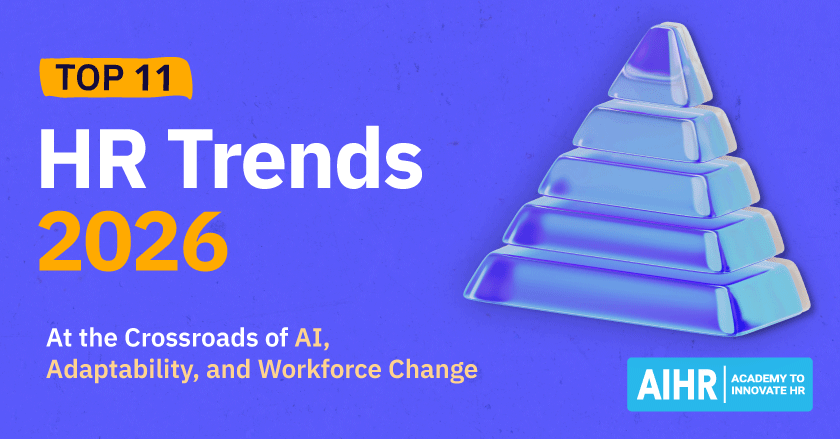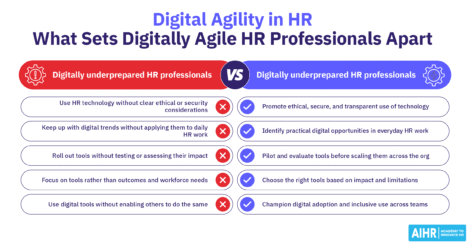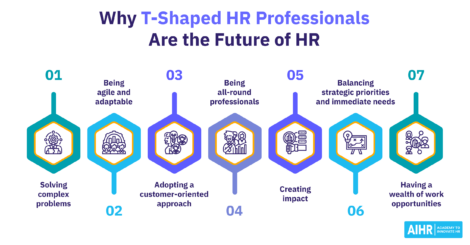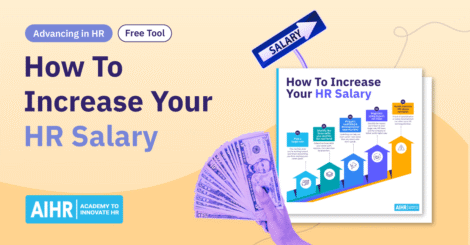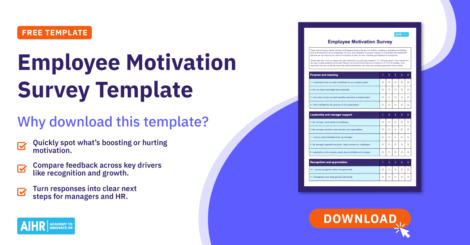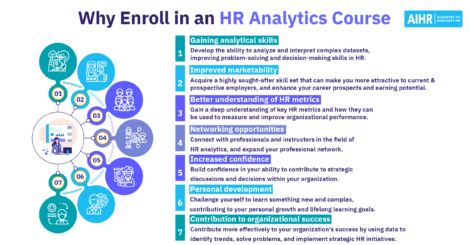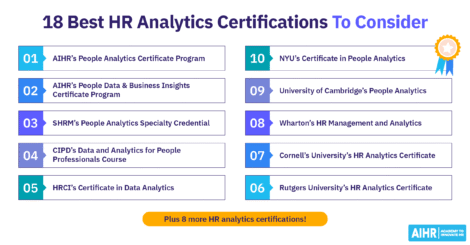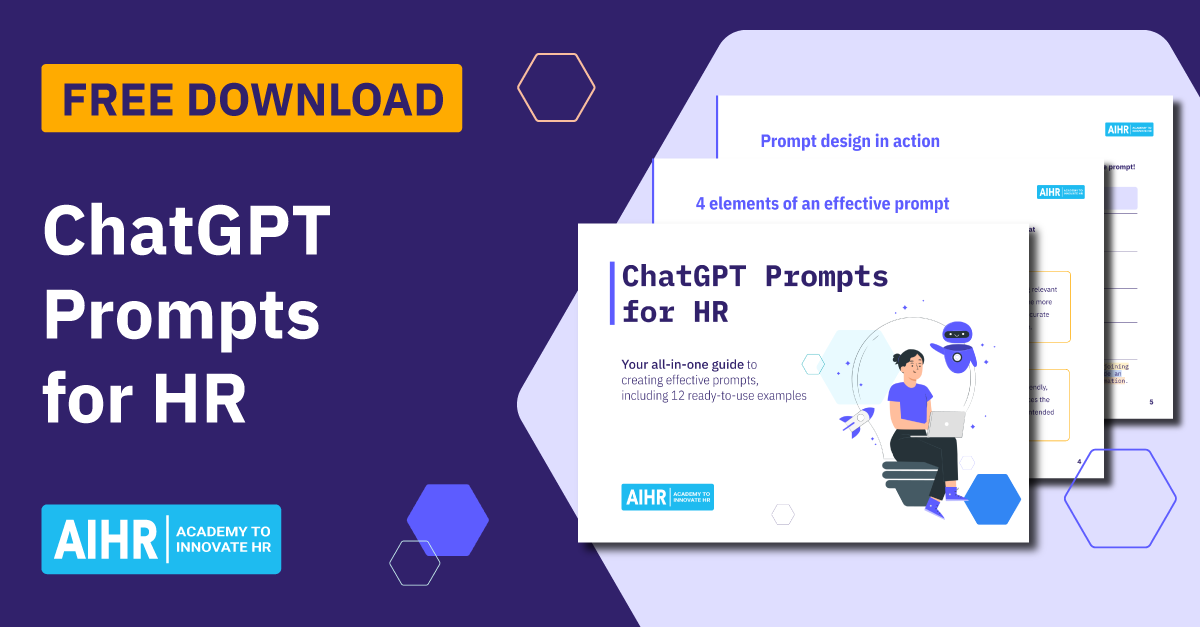Human Resources qualifications equip HR professionals with the skills and knowledge to manage workforce dynamics, ensure compliance with labor laws, and contribute to organizational success.
Acquiring HR qualifications and skills will help you keep pace with technological advancements, manage a changing workforce that includes remote and gig workers, ensure your company’s legal compliance, and analyze data for more effective decision-making.
Contents
What are Human Resources qualifications?
Types of human resources qualifications
Are Human Resources qualifications essential?
What qualifications do you need to work in Human Resources?
8 best practices for choosing the right HR qualification for you
FAQ
What are Human Resources qualifications?
HR qualifications range from university degrees to professional certificates from recognized institutions. These include the Society for Human Resource Management (SHRM), the Chartered Institute of Personnel and Development (CIPD), the Human Resource Certification Institute (HRCI), and the Academy to Innovate HR (AIHR).
HR degrees and HR certificate programs focus on areas like employment law, recruitment, and employee relations. Supplementary qualifications, like training in Diversity, Equity, Inclusion, and Belonging (DEIB) or soft skills, also help HR professionals understand workplace dynamics and improve employee engagement.
Beyond formal education, you need key skills in communication, conflict resolution, and problem-solving to become a qualified HR professional. The right balance of formal education and practical training will equip you to handle a variety of HR functions to support both employees and your company.
HR tip
Network with HR professionals: Attend HR conferences, webinars, and local meetups to build relationships with professionals in the field. Networking can open doors to learning about new qualifications, job opportunities, and industry trends you may not find through traditional research.
Types of human resources qualifications
- HR degrees: An HR degree in HR, such as a Bachelor’s or Master’s, provides in-depth education in areas like employment law, organizational behavior, and employee relations. These typically lay the foundation for advanced roles in HR management and strategy.
- HR diplomas: HR diplomas usually take a shorter time to complete than degrees and offer focused training in key HR areas like recruitment, payroll, and performance management. Consider a diploma if you want to enter the field or advance your HR career without having to commit to a full degree program.
- HR certifications: Certifications are specialized qualifications that validate your HR skills. You can try AIHR’s Certificate Programs, which provide specialized certifications in aspects like HR analytics and talent acquisition. These programs also feature Online Courses that allow you to study specific topics at your own pace, enabling you to boost your HR skills in areas like employee engagement and digital HR.

Are Human Resources qualifications essential?
HR qualifications provide you with a foundational knowledge base. It not only gives you the knowledge and competence to step into an HR role but also the confidence to know you are well-equipped and prepared. Your skill set will also need to develop within the scope of the HR function, and HR qualifications are a good way to ensure you develop the skills to adapt.
What qualifications do you need to work in Human Resources?
Here’s a breakdown of the typical qualifications for five common HR roles:
Human Resources Coordinator qualifications
An HR Coordinator role generally requires an Associate’s or Bachelor’s degree in HR or a related discipline. However, this is not always a requirement. This role is often an entry-level one, making it ideal for those with basic qualifications or limited relevant experience (e.g., around two years).
While extensive experience may not be necessary, familiarity with HR processes, systems, and best practices is highly beneficial. At the same time, short HR certificate programs like the following can help you gain foundational skills quickly:
- Learning and Development: This program focuses on how to design effective training programs and foster a culture of continuous learning within organizations.
- Organizational Development Certificate Program: This program will help you obtain the skills and expertise you need to help drive business success in both the long and short term.
Human Resources Specialist qualifications
An HR Specialist focuses on specific areas of HR, such as recruitment, compensation and benefits, employee relations, or training and development. To excel in this role, you should have a combination of formal education, certifications, and hands-on experience.
A Bachelor’s degree in HR or a related field, like business administration, organizational psychology, or economics will also assist in starting a career as a Human Resources Specialist. However, you can still enter the field without a degree if you have relevant HR experience.
If you can’t commit to a degree program, consider certifications to boost your credentials and expertise as an HR Specialist. AIHR has a wide range of certificate programs that allow you to specialize in areas critical to your HR career. These include:
- Sourcing and Recruitment Certificate Program: This program offers the practical knowledge and tools you need to handle the entire recruitment process.
- Compensation and Benefits Certificate Program: Consider this program if you want to develop competitive and future-proof compensation strategies.
- Strategic Talent Acquisition Program: You can look into this program if you want to learn to build and implement successful talent acquisition strategies.
In addition to the above certificate programs, consider internships or entry-level roles where you can apply theoretical knowledge and gain hands-on experience across key HR functions.
Human Resources Generalist qualifications
An HR Generalist is a versatile individual with a broad skill set who handles various HR functions, from recruitment to employee relations. They are the backbone of many HR departments, managing day-to-day operations while supporting the company’s strategic goals.
To begin a career as an HR Generalist, you’d need at least a Bachelor’s degree in HR, business administration, or a related field. These degree programs offer essential knowledge in areas such as recruitment, employee engagement, and employment law.
You can also consider the following AIHR Certificate Programs to enhance your qualifications:
- HR Generalist: This program will equip you with the necessary tools, templates, and knowledge to manage HR processes and navigate challenging conversations. It provides practical, hands-on training to help you add value to your business.
- HR Business Partner 2.0: This training program is designed to help you become a strategic partner to the business by acquiring essential skills, such as data literacy and business acumen.
Practical experience is also crucial for this role, and entry-level HR positions like HR Assistant or HR Coordinator offer valuable exposure to different HR functions that are useful to HR Generalists.
As you gain more experience in this role, you’ll take on responsibilities such as policy creation, recruitment process management, employee issue resolution, and legal compliance. Beyond technical knowledge, you’ll need strong communication, problem-solving, and interpersonal skills to handle the diverse challenges of this role.
Human Resources Manager qualifications
The HR Manager role typically requires a Bachelor’s degree in HR, business administration, or a similar field. Employers may even prefer candidates with a Master’s degree in HR or organizational development.
Additionally, gaining experience in roles like an HR Generalist or HR Specialist can help you build skills in key areas like employee relations, performance management, and employment law. Certifications from recognized institutions can further boost your credibility and help sharpen your HR strategy skills.
Consider the following AIHR Certificate Programs:
- HR Manager: This program will give you an in-depth understanding of business, organizational design, and HR operating models and teach you to align HR strategies with business goals.
- HR Metrics and Dashboarding: This program teaches you how to master HR analytics so that you can make data-driven decisions and present HR metrics effectively.
Reach your full HR potential through continuous learning
Whether you’re a fresh grad looking to begin an HR career or an HR professional aiming to advance to a more senior HR role, AIHR can help you develop the skills you need.
Through AIHR’s Full Academy Access, you can access all available Certificate Programs and obtain your chosen qualification at your own pace.
AIHR’s online, self-paced Certificate Programs offer a broad variety of HR certifications, from HR Generalist to Digital HR 2.0.
Human Resources Director qualifications
The HR Director position is a high-level leadership role that requires strategic vision, HR expertise, and practical leadership skills. HR Directors oversee all HR activities and ensure HR strategies align with overall business objectives.
HR Directors typically need at least a Bachelor’s degree in HR, business administration, or another related field. Many employers, however, prefer candidates with advanced degrees, like a Master’s in HR or a Master of Business Administration (MBA). These provide essential leadership, organizational development, and strategic HR management training.
Additionally, you can obtain professional HR certifications to help reinforce your HR skills and expertise. These include:
- People Analytics: This program will teach you how to drive business value with HR analytics, analyze people data in Excel, and build interactive HR dashboards and reports in Microsoft PowerBI.
- Artificial Intelligence for HR: This online certificate Program provides the strategic AI skills you need to drive innovation and efficiency in your HR function.
In terms of experience and practical knowledge, HR Directors typically already have 10 to 15 years of extensive experience in middle management or senior HR positions when they assume the role. Additionally, you must be proficient in employment law compliance, talent management, and using HR technology to make informed, data-driven decisions.
HR tip
Join professional HR organizations: Consider joining HR associations like SHRM or CIPD to gain access to exclusive resources, certifications, and continuous learning opportunities. Membership in such organizations often provides valuable tools and discounts on courses that can further your HR career.
8 best practices for choosing the right HR qualification for you
- Understand the requirements: Identify the required qualifications for your desired HR role by researching job postings and talking to industry peers.
- Do your research: Explore different educational institutes and certified HR course providers (including universities and organizations like AIHR) to assess and compare their associated costs and time commitments.
- Choose the right qualification: Based on your career goals, decide whether you should pursue general HR qualifications or specialized ones in areas like employee relations.
- Leverage online learning: Take advantage of flexible, reputable online programs to enrich your educational qualifications or to balance your HR studies with other commitments.
- Plan for further education: Consider all the requirements and costs of keeping your HR certifications updated so that you can factor that into your decision.
- Check for employer support: Some companies may offer financial assistance or sponsorship for HR courses and certifications—ask your employer about your options in this area.
- Prepare for certification exams: Use study guides and practice exams, and join study groups when preparing for certification exams.
- Stay updated on HR trends: Attend webinars, workshops, and conferences to keep your knowledge and skills current and relevant.
“Find ways and opportunities to apply your newfound knowledge. Think about what challenges you can solve or improvements you can make with it. This ensures your knowledge is not only enriching to you as an individual, but translates into business value.”

To sum up
Whether you’re just starting out in HR or aiming for a senior role, the right qualifications will ensure you remain competitive. By aligning your learning with your career goals, you can tailor your HR education and certifications to meet the specific demands of your desired HR role.
HR’s continued need to adapt to new challenges (such as remote work and digital transformation) will only increase the demand for qualified HR professionals. Take advantage of learning opportunities and network with industry peers to not only enhance your expertise but also position yourself as a key player in HR’s future.
FAQ
While employers often prefer their HR staff to have degrees, you may not need one for entry-level HR roles. Many HR professionals start in administrative roles and work their way up, gaining experience and earning certifications along the way. However, having a degree in HR, business administration, or a related field can significantly improve your chances of advancing in the field.
Most HR professionals pursue a Bachelor’s degree in HR, business administration, or organizational psychology. These programs provide essential knowledge in recruitment, employee relations, and compliance. If you aim to advance to a more senior HR role, a Master’s degree or specialized certifications can further enhance your career prospects.


